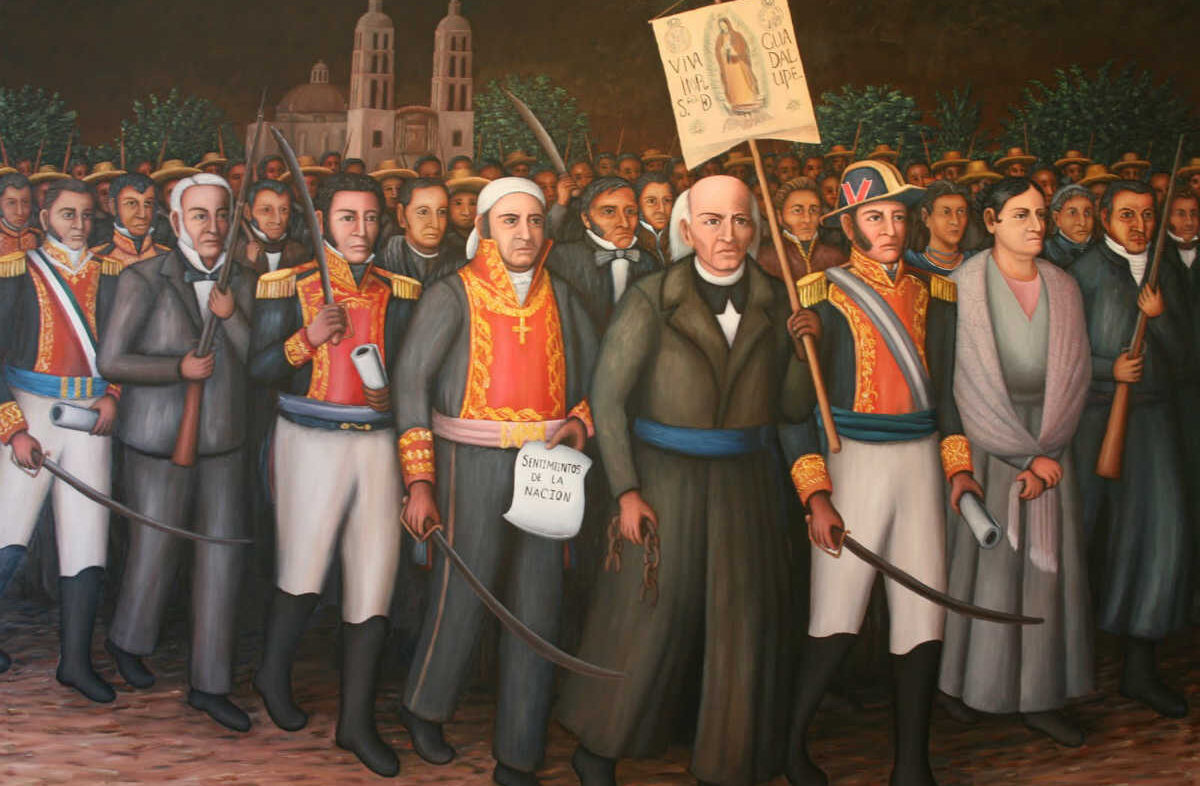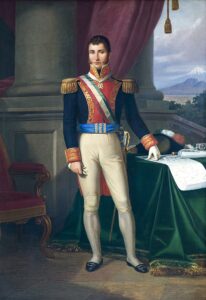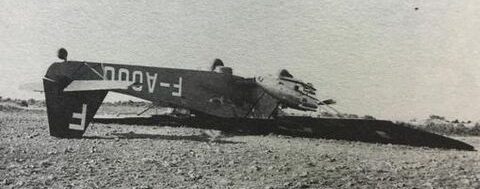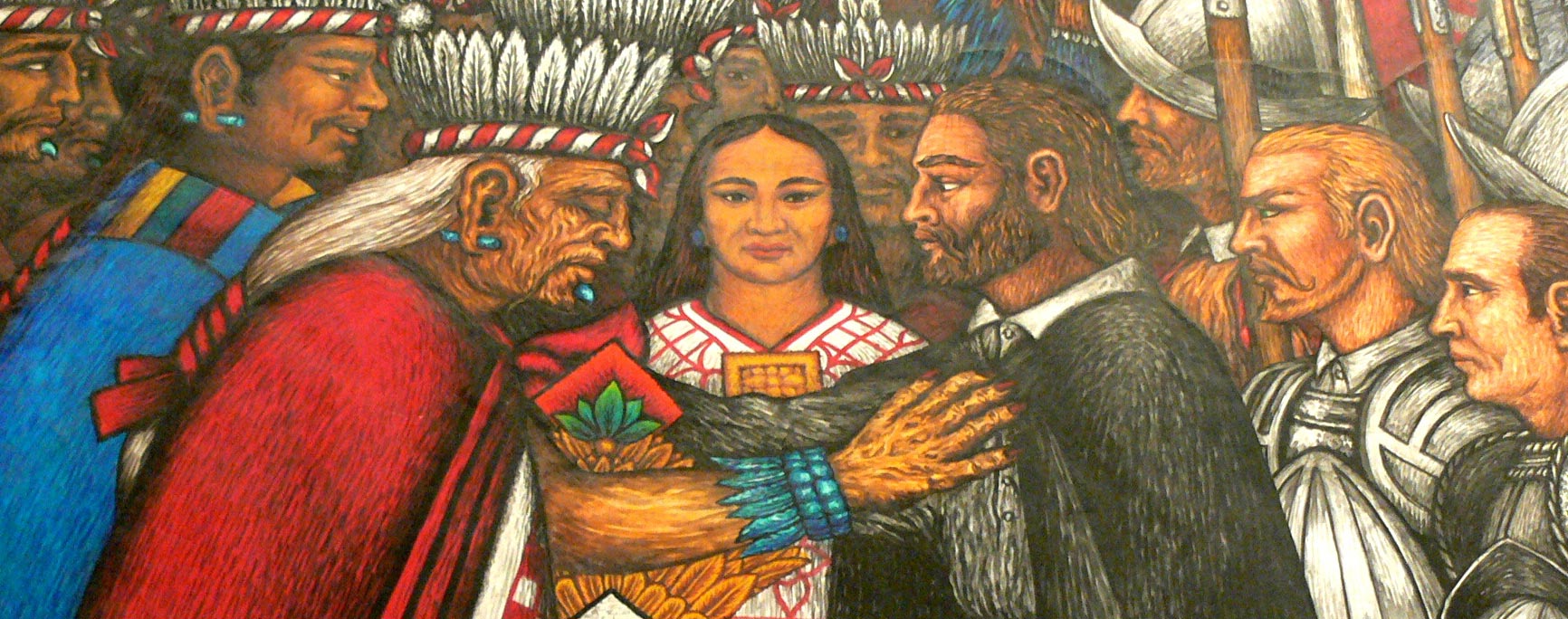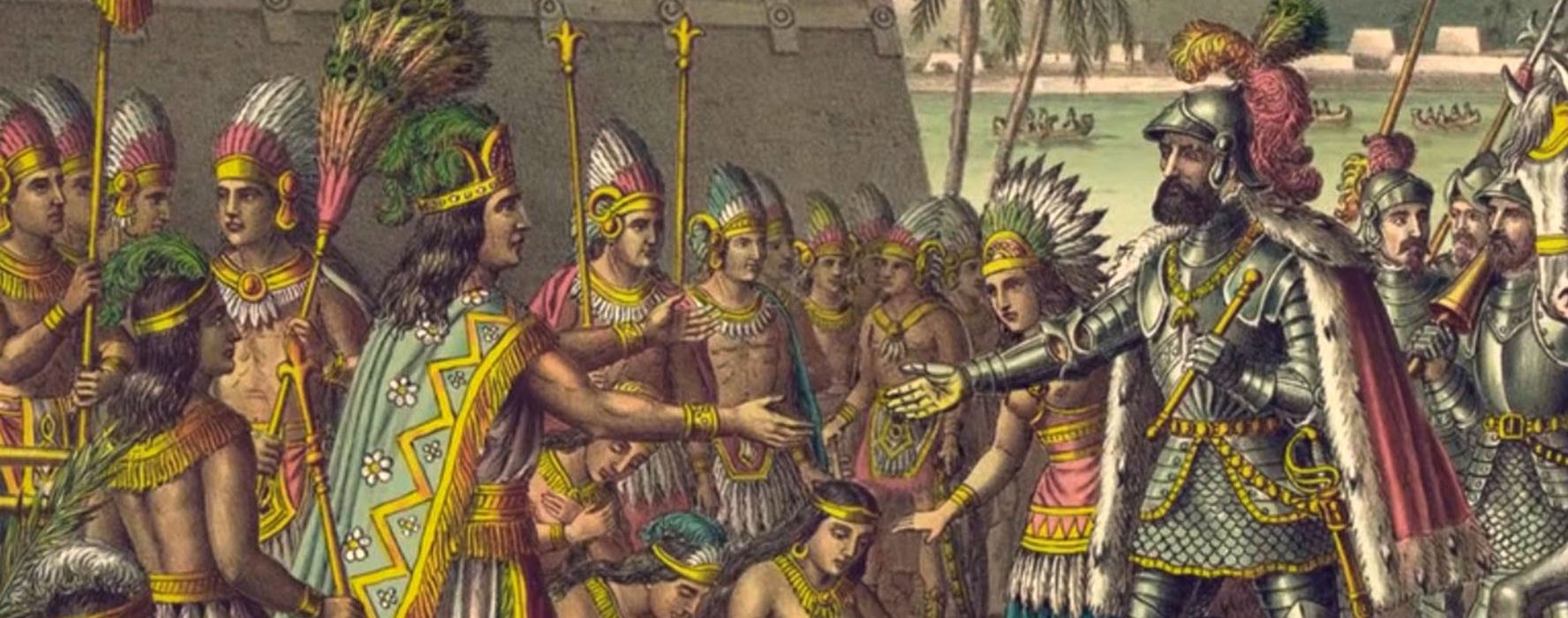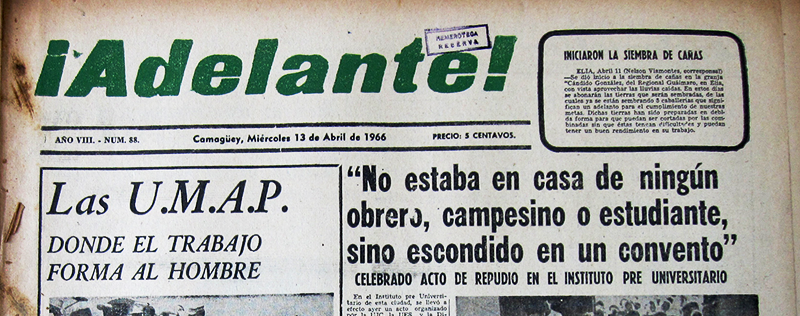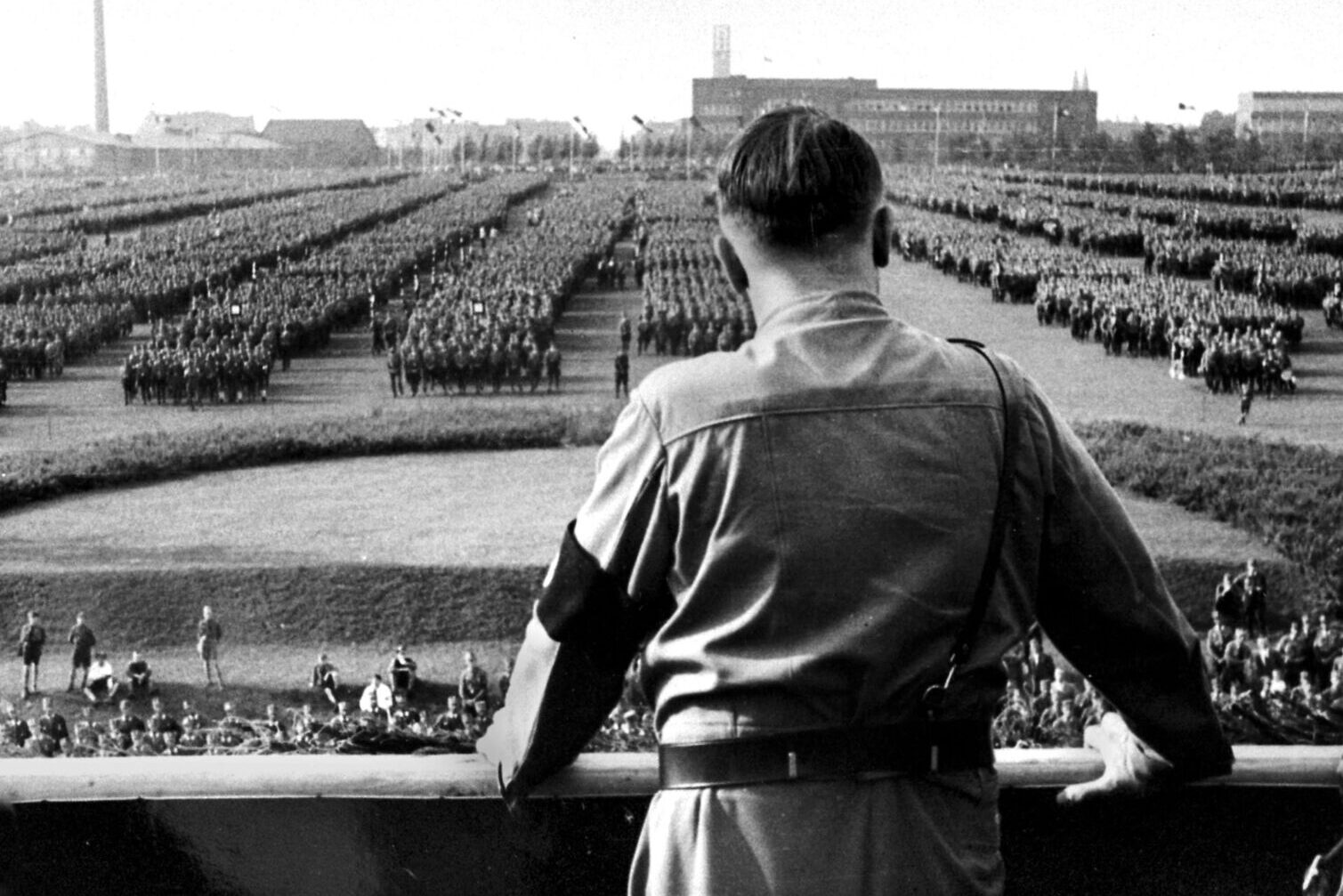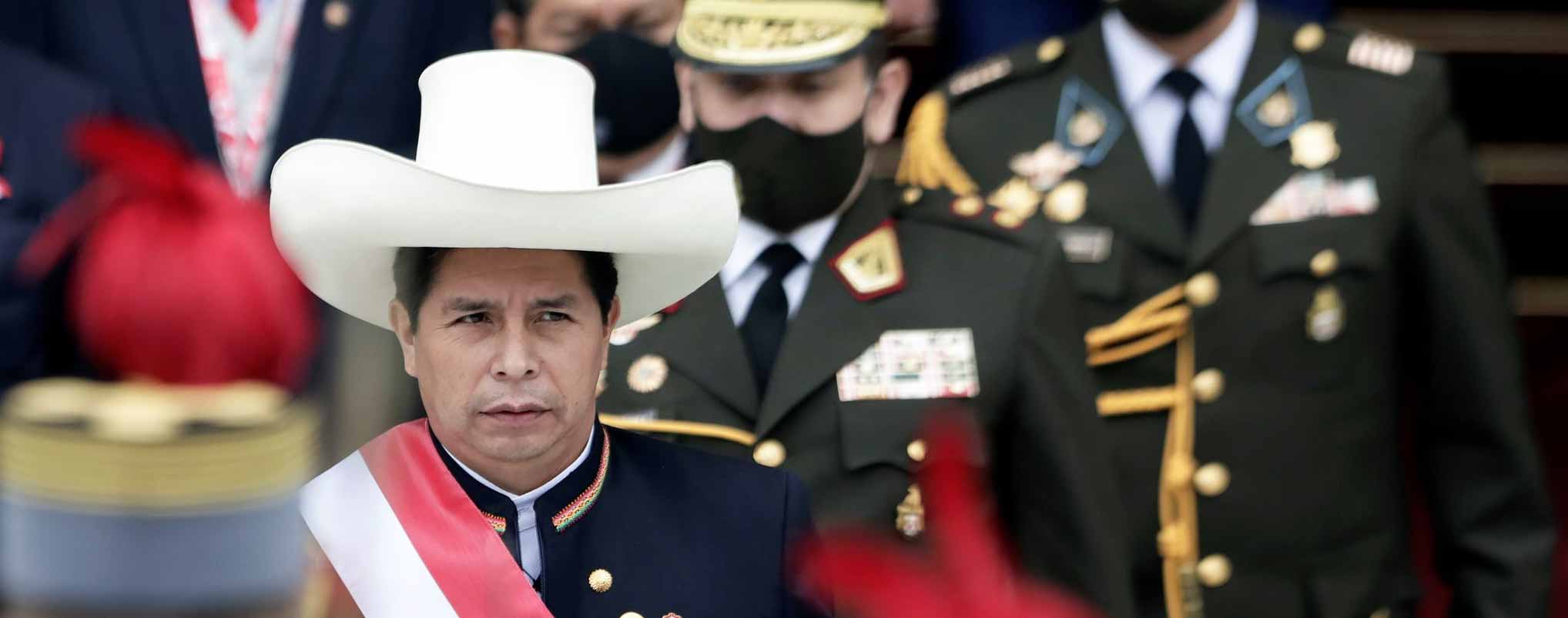Source:Unión Hispano Americana
To understand both the New Spain founded by Cortés and independent Mexico, one must always bear in mind the obvious: that the peninsular Spaniards were always a tiny minority, unable on their own to govern millions of Indians in 1521, and millions more in 1821.
This forced (along with the charity of the religious people and the support of the Crown for them) the favouring of local caciques to act as a link with the population, and the population itself to be satisfied with the government and not rise up against it: The result? Three hundred years of almost complete peace, in which it was never necessary to wall up the inland cities (the ports, yes, but only to defend against foreign pirates) or to maintain an army of occupation (it was the militias made up of indigenous and Novo-Hispanic volunteers of all colours who repressed any revolt).
So, thanks to this peace, the introduction of ploughs to expand crops, livestock, mule trains to increase the volume of goods transported, the expansion of mining and the maritime routes that established trade between Europe and China (controlled from Mexico City), New Spain became the richest kingdom in the world. And how did the invention go wrong? No, neither Hidalgo nor Morelos were responsible, because despite what the textbooks say, their revolt failed and they were executed.
Mexico was made independent by Iturbide, the head of the Royalist Army, a Creole (didn’t they say that Creoles were marginalised?) who separated the country from Spain because he considered that the peninsulars had betrayed Fernando VII by forcing him to swear the liberal Constitution that gave more rights to the people, taking away privileges from the aristocracy; that’s why he did it as an Empire and not as a republic, even offering the Imperial throne to Fernando VII himself?
In other words, they became independent not to give greater freedom to the people, but just the opposite. With independence they lost Cuba, Puerto Rico, Guam and the Philippines, and also the control of international trade, and its immense benefits (Great Britain kept all of it). This enormous economic loss increased the rifts between the Republicans and the Conservatives, and these struggles led to the loss of the Captaincy General of Guatemala, which became independent to plunge into its own chaos, and caused enough weakness to allow the secession of Texas by the American colonists, and this show of impotence, in turn, encouraged the US to attack them and rob them of half of what was left of their former expanse.
All these disasters followed in such a short time (not even thirty years) ruined their economy, both the people’s and the elite’s, and led the elite to try to recover their personal fortunes at the expense of the Indians and the Church by passing the Lerdo de Tejada Law in 1856, which allowed the confiscation of indigenous communal lands and those of religious ownership to be sold in lots at a ridiculous price (supposedly to be acquired by the Indians and poor peasants who cultivated them, thus becoming individual owners subject to the payment of taxes…). in practice, these lands were bought up by national oligarchs and foreign investors, especially when the Law was methodically put into practice, during the Porfiriato, creating the immense latifundia and stripping the Indians of all their possessions. And now let us think: if the Mexicans were so quick to rebel against the abuses of their government when they were already Mexicans, and their army was numerous and armed with modern rifles, how is it possible that they did not rebel en masse during 300 years of “tyrannical, abusive and murderous” Spanish rule, when there was practically no army and they themselves were the defence militias?
Share this article
On This Day
- 1503 Battle of Cerignola (Italy).
- 1522 Santiago de Cuba is granted the city status by Carlos I.
- 1589 Margarita de Saboya is born.
- 1611 Archbishop Miguel de Benavides founded the University of St Thomas in Manila.
- 1777 José Primo de Rivera, Hero of the Sieges, was born in Algeciras.
History of Spain
26 August 2020
27 January 2021
Communism: Now and Then
23 December 2022
28 July 2021
